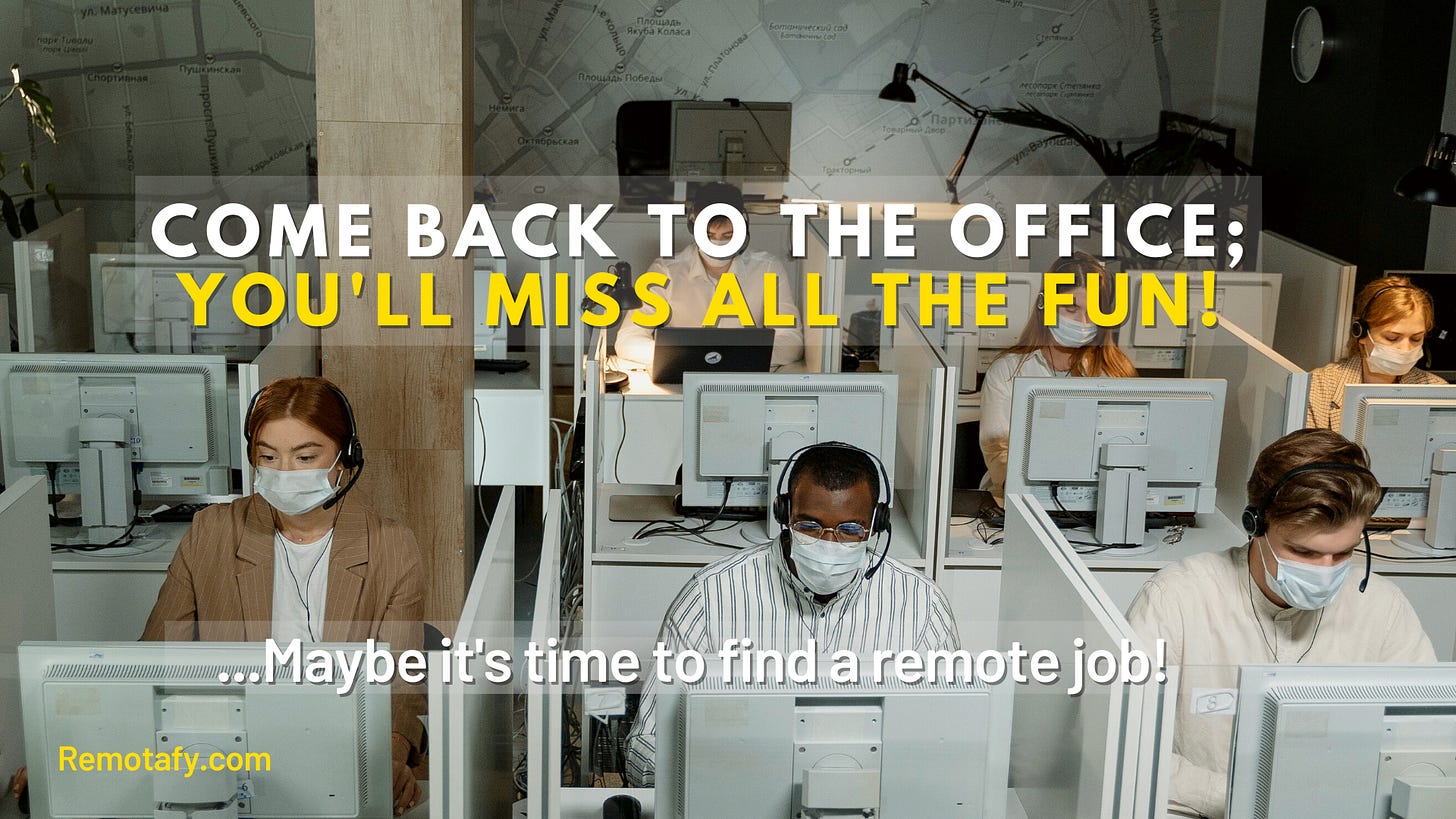The Kellington Times
What’s One Work Thing You Did Before The Pandemic That You’ll Never Do Again?
The virus outbreak made us rethink our priorities and question everything. It woke us up to the realities of our existence. We had a collective existential crisis. Is this all there is—a long commute, eight-plus hours in an office, then returning home exhausted? This is repeated over and over again for decades. It takes a toll, especially if you don’t like your job, have a bad boss and are treated horribly. Mental health issues are at record levels. Feelings of burnout, anxiety and isolation are all too common. People are pushing for change.
People Don’t Want To Work For These 15 Types Of Companies
When Gen-X and Baby Boomers entered the workforce they took a job. They didn’t care too much if they worked for a tobacco company that could cause cancer in their customers, sell chemical products that turned out to be toxic or pay slave labor wages to people working in countries outside of the U.S. They wanted a job and career, without contemplating the inherent moral and ethical implications. It’s not that they were bad people, the mindset was different back then. You worked at the company for twenty plus years, received a retirement package, given a hearty handshake by the boss, gold watch and you moved down to Florida.
IKEA’s Ingka Group Is Giving A $128 Million Bonus To Employees For Their Efforts During The Pandemic
Shopping at an Ikea superstore is a surreal experience. The first thing you notice is that it’s gigantic. You can spend all day marveling at the unique furniture, getting lost, and munching on tasty Swedish meatballs. Now, imagine if overnight, hundreds of locations were forced to shut down. The pandemic made the Ingka Group, the largest franchise of Ikea, with nearly 400 locations in 32 markets around the world, scramble and figure out what to do.
Three Cool Tech Startups That Are Powering The Remote And Hybrid-Work Trend
The pandemic has unleashed an entrepreneurial boom. With a large number of companies—ranging from Amazon to accounting firm PwC—encouraging remote and hybrid work styles, a cottage industry that serves this need has bloomed. The potential for growth is exponential, as millions of people around the world will work remotely full or part time. An array of forward-thinking businesses are offering technologies, platforms and services to facilitate this dramatic movement.
Barclays CEO Jes Staley Quits After Jeffrey Epstein Probe
Barclays CEO Jes Staley will stand down following an investigation into his relationship with Jeffrey Epstein, the bank said in a statement Monday. C.S. Venkatakrishnan (known as Venkat) will take over as chief executive with immediate effect, subject to regulatory approval. Barclays and Staley “were made aware on Friday evening of the preliminary conclusions” of a probe by the U.K.’s Financial Conduct Authority and the Prudential Regulation Authority, Barclays said.
Biden Administration To Publish Details On Covid Vaccine Mandate For Businesses In Coming Days
The Biden administration will publish in the coming days a rule requiring private businesses to ensure their employees are vaccinated against Covid-19, the Department of Labor said Monday. The rule applies to businesses with 100 or more employees. It’s estimated to cover about two-thirds of the private sector workforce. The development comes immediately after the White House issued separate vaccine-enforcement guidelines for federal contractors that apply to millions of workers.
The Great Resignation Has Employers Sweating. It’s Time To Escalate The Pressure
Despite quizzical think pieces on the motivations behind the Great Resignation, anyone who pays rent or a mortgage knows why this “labor shortage” is under way. After years of inflation and stagnant wages, the pandemic has revealed the value of labor, the worthlessness of commutes and office culture, and the importance of finding personal comfort in times of increasing precarity.
American Airlines Reduces Flight Cancellations But Staffing Challenges Continue To Disrupt Travel
American Airlines on Monday canceled more than 300 flights, or 10% of its schedule, as the company scrambled to stabilize its operations after reporting staffing shortages that led to travel disruptions for thousands of people over the weekend. The Fort Worth-based airline had cancelled more than 2,000 mainline flights since Friday, blaming the issues on high winds on Thursday and a shortfall of crews. On Sunday alone, it cancelled more than 1,000 flights, or 30% of its operation, according to flight-tracking site FlightAware. That affected more than 136,000 customers, according to a company document, which was viewed by CNBC.




